
Self
An epic exploration of the Czechoslovak New Wave cinema of the 1960s and 70s, structured around a series of conversations with one of its most acclaimed exponents - Closely Observed Trains director Jiří Menzel.
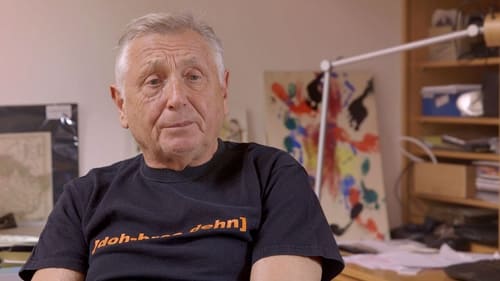
Self
Documentary feature about Czech director Jiří Menzel, featuring Menzel himself as well as Miloš Forman, Emir Kusturica, István Szabó and others.

Documentary about the making of Vera Chytilová's film DAISIES

Screenplay
Chytilová ran for Senate in 2006 as a Rovnost Šancí (The Equal Chance Party) candidate. The film is a collection of monologues by female party members from across the nation.

Idea
Chytilová ran for Senate in 2006 as a Rovnost Šancí (The Equal Chance Party) candidate. The film is a collection of monologues by female party members from across the nation.

Director
Chytilová ran for Senate in 2006 as a Rovnost Šancí (The Equal Chance Party) candidate. The film is a collection of monologues by female party members from across the nation.

Director
Hana is a psychologist and a thoroughly independent woman. Her unemployed husband, jealous of his wife, finds a younger girlfriend, but their teenage son Honzik is frustrated; everyone ignores him. Hana's patient Eva, an attractive middle-aged woman, is having problems with her 25-year-old son; she is in love with her son's friend and her son is offended by her behavior. To complete the circle, he falls in love with Hana and Honzik is utterly disgusted by their affair. Another of Hana's patients is Dub, a millionaire who can have pretty much anything, or anyone, he wants. He wants Hana. But he can't have her.

Director
Ester Krumbachová - a costume designer, screenwriter, director; one of the boldest personalities of the Czech New Wave. She worked in theatre, she was a writer and an illustrator. She co-created films such as O slavnosti a hostech (1966), Sedmikrásky (1966), Vsichni dobrí rodáci (1969), Pension pro svobodné pány (1968), Valerie a týden divu (1970), Slamený klobouk (1972) and many others. In the 1960s, she was a 'pivot' of the art scene in Prague, attracting artists who were on the threshold of their career, just setting out to find their own form of self-realization. Those who underwent her tutelage remember her forever. Director Vera Chytilová talks to those who knew Ester Krumbachová, who worked with her, befriended her, loved her. She sets off on a search that is to end by answering the question: Who was Ester?

Herself
Ester Krumbachová - a costume designer, screenwriter, director; one of the boldest personalities of the Czech New Wave. She worked in theatre, she was a writer and an illustrator. She co-created films such as O slavnosti a hostech (1966), Sedmikrásky (1966), Vsichni dobrí rodáci (1969), Pension pro svobodné pány (1968), Valerie a týden divu (1970), Slamený klobouk (1972) and many others. In the 1960s, she was a 'pivot' of the art scene in Prague, attracting artists who were on the threshold of their career, just setting out to find their own form of self-realization. Those who underwent her tutelage remember her forever. Director Vera Chytilová talks to those who knew Ester Krumbachová, who worked with her, befriended her, loved her. She sets off on a search that is to end by answering the question: Who was Ester?

Herself
Documentary about Czech filmaker Vera Chytilova.

Screenplay
Em uma praia nudista, o cineasta Rosta (Bolek Polívka) encontra problemas para dirigir o seu filme, Paradiso. A cada dia de filmagem que se passa, parece ser mais complicado gerenciar sua equipe harmonicamente, já que os ânimos ficam cada vez mais exaltados. Para piorar a situação, sua esposa começa a entrar em conflito junto ao elenco.

Director
Em uma praia nudista, o cineasta Rosta (Bolek Polívka) encontra problemas para dirigir o seu filme, Paradiso. A cada dia de filmagem que se passa, parece ser mais complicado gerenciar sua equipe harmonicamente, já que os ânimos ficam cada vez mais exaltados. Para piorar a situação, sua esposa começa a entrar em conflito junto ao elenco.

Screenplay
Chytilová’s highly impressive but little-known documentary provides a fascinating and atmospheric journey into a hidden culture, one in which she herself participated. Chytilová investigates the lives of three Czech photographers (Václav Chochola, Karel Ludwig, Zdeněk Tmej) from the 30s to the present, and also embraces the submerged world of 50s culture and the work of novelist Bohumil Hrabal and artist Vladimír Boudník.

Director
Chytilová’s highly impressive but little-known documentary provides a fascinating and atmospheric journey into a hidden culture, one in which she herself participated. Chytilová investigates the lives of three Czech photographers (Václav Chochola, Karel Ludwig, Zdeněk Tmej) from the 30s to the present, and also embraces the submerged world of 50s culture and the work of novelist Bohumil Hrabal and artist Vladimír Boudník.
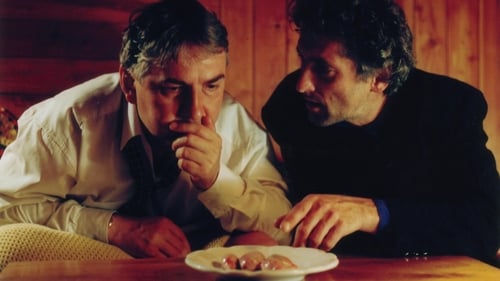
Writer
After two troubled but powerful men rape a young hitchhiker who happens to be a vet, she drugs them and removes their testicles.

Director
After two troubled but powerful men rape a young hitchhiker who happens to be a vet, she drugs them and removes their testicles.
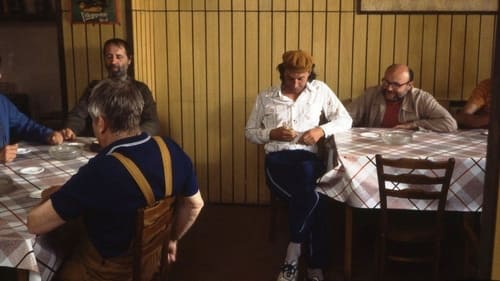
Writer
Bohus is indolent and spends his days drinking brandy. One day he finds he has inherited a brickworks, several shops and a five-star hotel. Bohus sets out to tour his new empire, insulting everyone on the way.

Director
Bohus is indolent and spends his days drinking brandy. One day he finds he has inherited a brickworks, several shops and a five-star hotel. Bohus sets out to tour his new empire, insulting everyone on the way.

Director
The life of Tomáš Garrigue Masaryk, the first elected President of Czechoslovakia following the fall of the Austro-Hungarian empire in 1918.
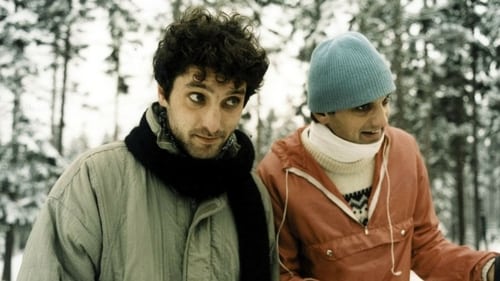
Writer
A striking generational tragicomedy, A Hoof Here, a Hoof There is a caustic group portrait of pals who enjoy a tipple, all kinds of hi-jinks and no-strings sexual adventures. Auditor Pepe, vet Dědek and restaurant manager František are financially secure and enjoy life with their similarly fun-loving girlfriends—at least until the moment when the brash Pepe collapses and ends up in hospital.

Director
A striking generational tragicomedy, A Hoof Here, a Hoof There is a caustic group portrait of pals who enjoy a tipple, all kinds of hi-jinks and no-strings sexual adventures. Auditor Pepe, vet Dědek and restaurant manager František are financially secure and enjoy life with their similarly fun-loving girlfriends—at least until the moment when the brash Pepe collapses and ends up in hospital.

Director
The movie is a satirical look at foreign occupation - a medieval Czech jester entertains a German king and his French wife, or a modern Czech villager helps a Bavarian hunter and his French wife find wild boar in Bohemia - the story switches back and forth between the two plots and time-periods.
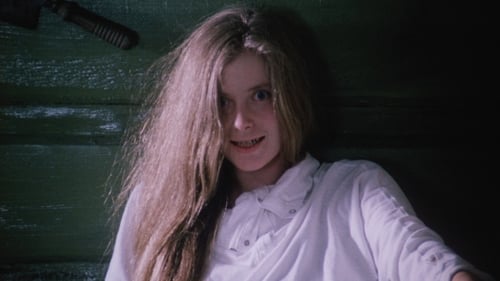
Writer
In this Czech political allegory-cum-sci-fi adventure, ten teens from different schools find themselves chosen to take part in a special skiing workshop in the mountains. On the day of the seminar, eleven young people, each bearing an invitation, arrive. A massive avalanche occurs and the ski-lodge is cut off from outside contact. Unfortunately, food supplies are limited and the three instructors strongly advise that the youths work together to make do or choose someone to leave. Time passes and soon the kids learn that their “teachers” are not what they seem to be.

Director
In this Czech political allegory-cum-sci-fi adventure, ten teens from different schools find themselves chosen to take part in a special skiing workshop in the mountains. On the day of the seminar, eleven young people, each bearing an invitation, arrive. A massive avalanche occurs and the ski-lodge is cut off from outside contact. Unfortunately, food supplies are limited and the three instructors strongly advise that the youths work together to make do or choose someone to leave. Time passes and soon the kids learn that their “teachers” are not what they seem to be.

Story
This distinctive documentary portrait of Prague extolls the beauty, significance and spirit of the ancient city adopting modern way of life. The form and content of the film share a common underlining principle. The author doesn't simply list out the sequence of events, but rather approaches them in a broader context of their historic implications and circumstances. The content of the film covers a large period from the pagan times to these days. The facts are grouped under several general headings (paganry, the spread of Christianity, renaissance, baroq and modern times) with allusions to the modern life of Prague and Praguers that has its roots in those times.

Screenplay
This distinctive documentary portrait of Prague extolls the beauty, significance and spirit of the ancient city adopting modern way of life. The form and content of the film share a common underlining principle. The author doesn't simply list out the sequence of events, but rather approaches them in a broader context of their historic implications and circumstances. The content of the film covers a large period from the pagan times to these days. The facts are grouped under several general headings (paganry, the spread of Christianity, renaissance, baroq and modern times) with allusions to the modern life of Prague and Praguers that has its roots in those times.

Director
This distinctive documentary portrait of Prague extolls the beauty, significance and spirit of the ancient city adopting modern way of life. The form and content of the film share a common underlining principle. The author doesn't simply list out the sequence of events, but rather approaches them in a broader context of their historic implications and circumstances. The content of the film covers a large period from the pagan times to these days. The facts are grouped under several general headings (paganry, the spread of Christianity, renaissance, baroq and modern times) with allusions to the modern life of Prague and Praguers that has its roots in those times.

Writer
A bachelor named Faun with a Don Juan complex, seized with a hypochondriac's fear of the ineluctable approach of death, enters a race against time's passage. Faun's sexual love is imbued with the narcissistic vanity of a self-satisfied bacchant who even towards old age can't manage to forgo his lifelong pose as an irresistable seducer of women. He desperately searches for meaning in superficial, fleeting sex.

Director
A bachelor named Faun with a Don Juan complex, seized with a hypochondriac's fear of the ineluctable approach of death, enters a race against time's passage. Faun's sexual love is imbued with the narcissistic vanity of a self-satisfied bacchant who even towards old age can't manage to forgo his lifelong pose as an irresistable seducer of women. He desperately searches for meaning in superficial, fleeting sex.

Director
An intellectual match between two dramatically different artists, one permanently unsure and frustrated and questioning everything, the other an astonishing storyteller perfectly at peace, unacquainted with introspection and reliant on intuition.

An intellectual match between two dramatically different artists, one permanently unsure and frustrated and questioning everything, the other an astonishing storyteller perfectly at peace, unacquainted with introspection and reliant on intuition.

Screenplay
Funny banter about love, sex, social status, and other ideals, while a new railway employee is trained and sent on his first run as driver.

Director
Funny banter about love, sex, social status, and other ideals, while a new railway employee is trained and sent on his first run as driver.
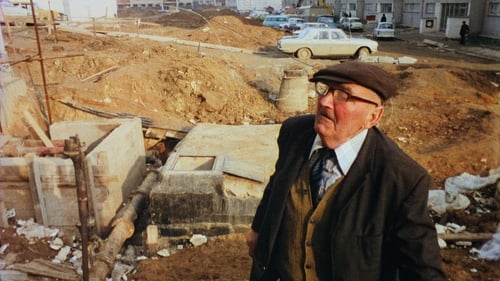
Writer
An old man is wandering round a badly signposted and as yet mostly under construction Prague housing estate looking for the high rise block into which he is supposed to be moving with his daughter's family. The old granddad from the countryside likes chatting, nothing escapes his eyes and he wants to give everyone a helping hand.

Director
An old man is wandering round a badly signposted and as yet mostly under construction Prague housing estate looking for the high rise block into which he is supposed to be moving with his daughter's family. The old granddad from the countryside likes chatting, nothing escapes his eyes and he wants to give everyone a helping hand.

Story
Documentary about old age.

Screenplay
Documentary about old age.

Director
Documentary about old age.

Screenplay
Sarcastic comedy about the Czechoslovakia of the seventies. A young gynaecologist can't figure out whether to get serious with a young nurse or to stay casual with his married lover. Things get complicated when both women don't want to play his game anymore.

Story
Sarcastic comedy about the Czechoslovakia of the seventies. A young gynaecologist can't figure out whether to get serious with a young nurse or to stay casual with his married lover. Things get complicated when both women don't want to play his game anymore.

Director
Sarcastic comedy about the Czechoslovakia of the seventies. A young gynaecologist can't figure out whether to get serious with a young nurse or to stay casual with his married lover. Things get complicated when both women don't want to play his game anymore.

Screenplay
Produzido para a televisão, relata uma tensa história sobre três soldados e um disparo fatídico.

Director
Produzido para a televisão, relata uma tensa história sobre três soldados e um disparo fatídico.
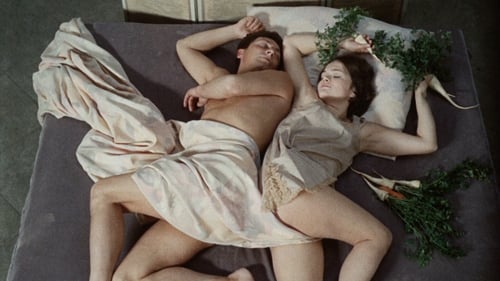
Screenplay
An experimental retelling of the story of Adam and Eve which then progresses into an allegorical depiction of the loss of innocence.

Director
An experimental retelling of the story of Adam and Eve which then progresses into an allegorical depiction of the loss of innocence.
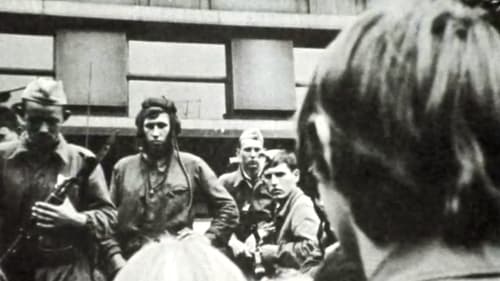
Herself
Filmed clandestinely in Czechoslovakia on 16mm. It's one of the films Godard made with the Groupe Dziga Vertov - a Marxist film about the political situation after the '68 revolution.
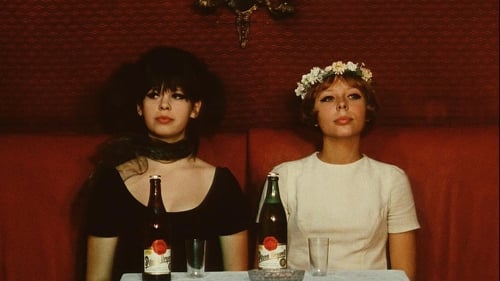
Story
Utilizando-se de avançados efeitos especiais para a época, Vera Chytilová dirigiu esta obra surrealista que conta a história de duas garotas chamadas Marie, que decidem se adequar ao mundo como ele está: sendo depravadas. Portanto, ambas partem para uma série de encontros forjados e travessuras, desconstruindo o mundo ao seu redor.

Screenplay
Utilizando-se de avançados efeitos especiais para a época, Vera Chytilová dirigiu esta obra surrealista que conta a história de duas garotas chamadas Marie, que decidem se adequar ao mundo como ele está: sendo depravadas. Portanto, ambas partem para uma série de encontros forjados e travessuras, desconstruindo o mundo ao seu redor.

Director
Utilizando-se de avançados efeitos especiais para a época, Vera Chytilová dirigiu esta obra surrealista que conta a história de duas garotas chamadas Marie, que decidem se adequar ao mundo como ele está: sendo depravadas. Portanto, ambas partem para uma série de encontros forjados e travessuras, desconstruindo o mundo ao seu redor.

Self
Documentary about the film academy in Prague and the Czech Film in 1965.
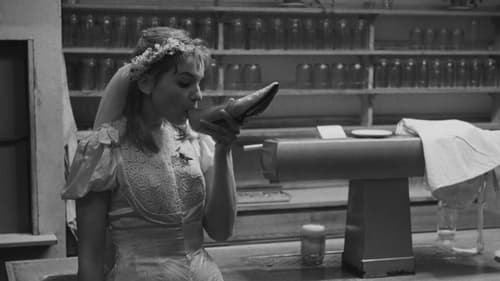
Screenplay
A manifesto of sorts for the Czech New Wave, this five-part anthology shows off the breadth of expression and the versatility of the movement’s directors. Based on stories by the legendary writer Bohumil Hrabal, the shorts range from the surreally chilling to the caustically observant to the casually romantic, but all have a cutting, wily view of the world.

Director
A manifesto of sorts for the Czech New Wave, this five-part anthology shows off the breadth of expression and the versatility of the movement’s directors. Based on stories by the legendary writer Bohumil Hrabal, the shorts range from the surreally chilling to the caustically observant to the casually romantic, but all have a cutting, wily view of the world.

Screenplay
In her first feature, Věra Chytilová uses a combination of documentary and fiction film techniques to tell two stories in counterpoint. The first follows Olympic champion gymnast Eva Bosáková, who contemplates retirement as she undergoes a gruelling training schedule; the second, a housewife who is unappreciated and ignored by her husband.

Story
In her first feature, Věra Chytilová uses a combination of documentary and fiction film techniques to tell two stories in counterpoint. The first follows Olympic champion gymnast Eva Bosáková, who contemplates retirement as she undergoes a gruelling training schedule; the second, a housewife who is unappreciated and ignored by her husband.

Director
In her first feature, Věra Chytilová uses a combination of documentary and fiction film techniques to tell two stories in counterpoint. The first follows Olympic champion gymnast Eva Bosáková, who contemplates retirement as she undergoes a gruelling training schedule; the second, a housewife who is unappreciated and ignored by her husband.
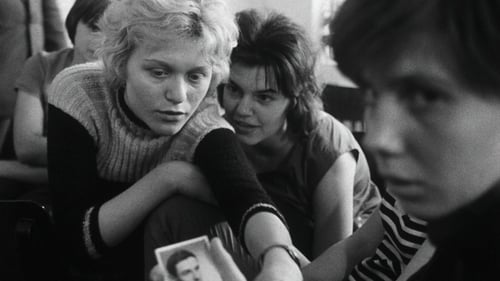
Screenplay
A câmera subjetiva encontra liberdade e alegria em meio à rígida conformidade da vida em um internato comunitário de fábrica na Tchecoslováquia dos anos 60.

Story
A câmera subjetiva encontra liberdade e alegria em meio à rígida conformidade da vida em um internato comunitário de fábrica na Tchecoslováquia dos anos 60.

Director
A câmera subjetiva encontra liberdade e alegria em meio à rígida conformidade da vida em um internato comunitário de fábrica na Tchecoslováquia dos anos 60.

Commentary (voice)
Her first foray into documentary filmmaking was a short called Green Street (1959), a look at an over-loaded freight train departing from Prague. Though only nine minutes in length, Chytilová’s astute editing ensured a visual spectacle.

Story
Her first foray into documentary filmmaking was a short called Green Street (1959), a look at an over-loaded freight train departing from Prague. Though only nine minutes in length, Chytilová’s astute editing ensured a visual spectacle.

Screenplay
Her first foray into documentary filmmaking was a short called Green Street (1959), a look at an over-loaded freight train departing from Prague. Though only nine minutes in length, Chytilová’s astute editing ensured a visual spectacle.

Director
Her first foray into documentary filmmaking was a short called Green Street (1959), a look at an over-loaded freight train departing from Prague. Though only nine minutes in length, Chytilová’s astute editing ensured a visual spectacle.

Model (voice)
The young Marta has made a break in her medical education to fully invest in her career as a model. We follow her for a day in her life, almost completely without hearing her voice. It is seldom that Marta gets the space to speak, instead she is mostly subject to the voice of others.

Story
The young Marta has made a break in her medical education to fully invest in her career as a model. We follow her for a day in her life, almost completely without hearing her voice. It is seldom that Marta gets the space to speak, instead she is mostly subject to the voice of others.

Screenplay
The young Marta has made a break in her medical education to fully invest in her career as a model. We follow her for a day in her life, almost completely without hearing her voice. It is seldom that Marta gets the space to speak, instead she is mostly subject to the voice of others.

Director
The young Marta has made a break in her medical education to fully invest in her career as a model. We follow her for a day in her life, almost completely without hearing her voice. It is seldom that Marta gets the space to speak, instead she is mostly subject to the voice of others.

Screenplay
In a rare instance of literary adaptation, Chytilová was inspired by Franz Kafka’s writings. Mr. K stashes stolen jewelry away at home and seldom allows his wife to wear it. A nosy neighbour, Mr. B, drops in. A cat observes it all.

Cat (voice)
In a rare instance of literary adaptation, Chytilová was inspired by Franz Kafka’s writings. Mr. K stashes stolen jewelry away at home and seldom allows his wife to wear it. A nosy neighbour, Mr. B, drops in. A cat observes it all.

Director
In a rare instance of literary adaptation, Chytilová was inspired by Franz Kafka’s writings. Mr. K stashes stolen jewelry away at home and seldom allows his wife to wear it. A nosy neighbour, Mr. B, drops in. A cat observes it all.

Assistant Director
Lost Children (Czech: Ztracenci) is a Czechoslovak war film directed by Miloš Makovec. It was entered into the 1957 Cannes Film Festival.
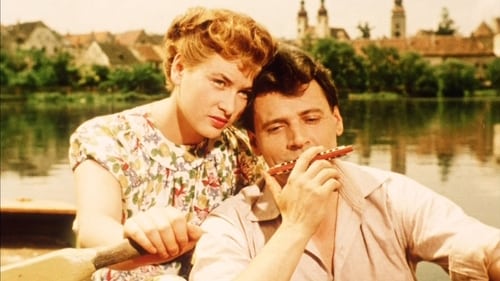
Clapper Loader

Clapper Loader
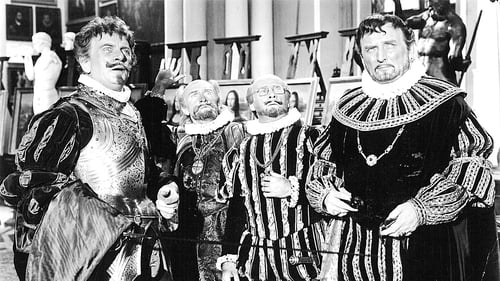
First Handmaiden
The Emperor's mismanagement of his country is provoking some in his court to plot to overthrow him. He feels successful, at least, when he discovers the legendary Golem, which he believes can protect him and even cure his imaginary illnesses but, when he disappears while on a bender, his kindly baker, who looks just like him, is mistaken for him, and begins to put things in order. However, the conspirators, not to be outdone, determine to bring the Golem back to life to do their bidding.





















